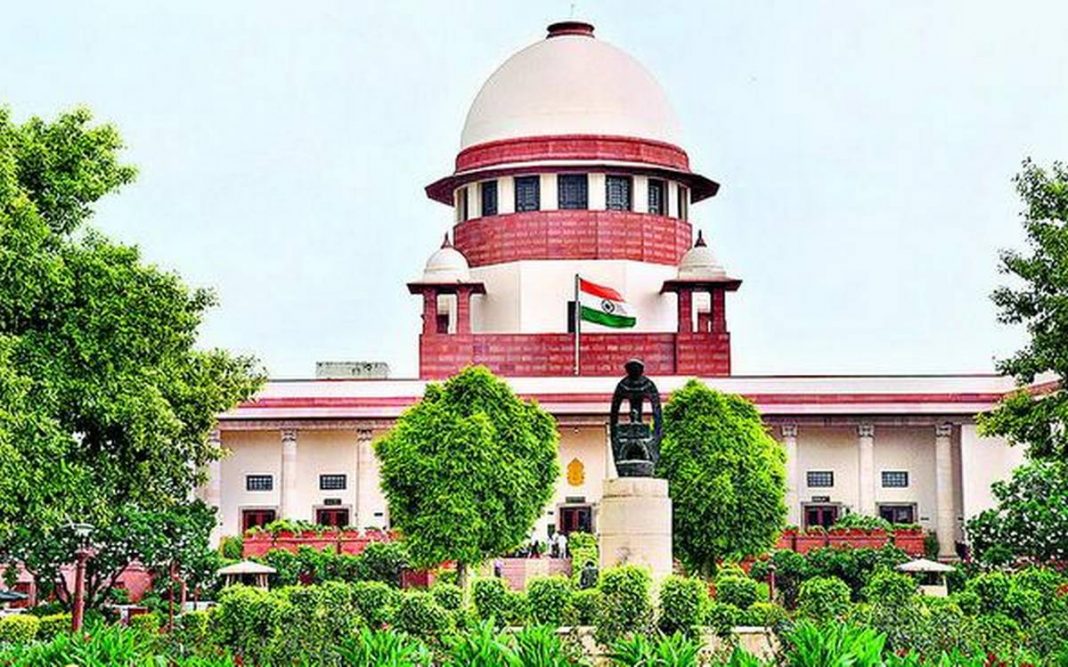Latest News
Case Analysis: National Legal Services Authority v. Union of India (2014) 5 SCC 438

The following petition was filed by The National Legal Services Authority, constituted under the Legal Services Authority Act, 1997 to safeguard the rights of the Transgender citizens to get a declaration of their gender identity, apart from the male and female that were given to them emphatically. The petition contended that such non-declaration violates the Articles 14 and 21 guaranteed to them under Part III of the Constitution of India. Several other petitions got clubbed with this one contending the same with the effect of including Hijras/Eunuchs, Kinnars etc. as the third gender and giving these genders the same fundamental rights as guaranteed to the citizens of other genders.
The counsel for the petitioners highlighted the traumatic condition of those people in the absence of the recognition that is not given to them. Neither are they termed as male or female nor given the right to decide upon their sexual orientation that leaves behind a huge aperture of rights which they are not able to enjoy or claim at the time of distress. This ranges from claiming their right to contest elections to inadequate or even null infrastructure in health care and public hygiene to being treated as an outcast and untouchable and being denied employment and thus violates their Article 14, 15, 16 and 21 of the Constitution of India.
The counsels also pointed out the historical background and their importance and the role they played in the history by citing the Hindu Mythology Vedic and Puranic literature, and the prominent role played by them in the royal courts of the Islamic world etc. The counsel also pleaded for placing the community under the socially and educationally backward classes of citizens and must be accorded all benefits available to that class of persons and weighed in that the ‘Kinnar’ being the most deprived one and be given special socio-economic benefits.
The respondents while accepting the backwardness and the socially benighted life faced by the community replied that a Committee, called “Expert Committee on Issues relating to Transgender”, has been constituted to conduct an in-depth study of the problems relating to transgender persons to make appropriate recommendations to Ministry of Social Justice and Empowerment.
The court took notice of the various steps taken by various states and Union Territories to empower the ones. The bench also took on to describe the difference between the above-mentioned classes and their individual plights. The court also took notice of the international bodies who advocate the rights of the third genders and the recognition and rights these bodies describe in their charters, for example, Article 6 of the Universal Declaration of Human Rights, 1948 and Article 16 of the International Covenant on Civil and Political Rights, 1966 (ICCPR). Special attention was drawn towards the Yogyakarta principles which talk about the International Human Rights Law about Sexual Orientation and Gender Identity. The court took notice of the reports of the United Nations over the HIV and pointed out that the most concerning state is of Transgenders who get engaged as the Sexual Workers to meet their needs and get prone to the STD diseases which also add to their plight of social exclusion.
Another point which court took notice was that of Article 253 of the Constitution of India and pointed out that in cases where there is any discrepancy between the International Law and Indian Law; the Indian Law would prevail but if there is no contradiction to the International law then the International Law would prevail. While referring to the judgement in the His Holiness Kesavananda Bharati Sripadavalvaru v. State of Kerala (1973) 4 SCC 225, the Supreme Court stated that given Article 51 of the Constitution, the Court must interpret the language of the Constitution, if not intractable, in the light of United Nations Charter and the solemn declaration subscribed to it by India. Therefore, the Supreme Court recognised the International Conventions, including Yogyakarta principles as the governing law as for the time being.
The Supreme Court also held that any sort of discrimination with the Transgenders would be violative of the Articles 14, 15, 16 and ordered for the extension of every infrastructural facility to the transgenders and adequate steps for giving them due representation in public services. The court also recognised the right to choose and express the gender under Articles 19(1)(a) and 21 and added that the state cannot restrict one from expressing their personality and if it does so then it would violate Article 19 and 21. The court also held the biological test used for the identification as inappropriate and recommended the psychological test.
Document:



































































































